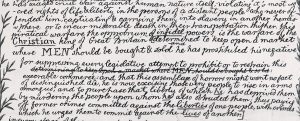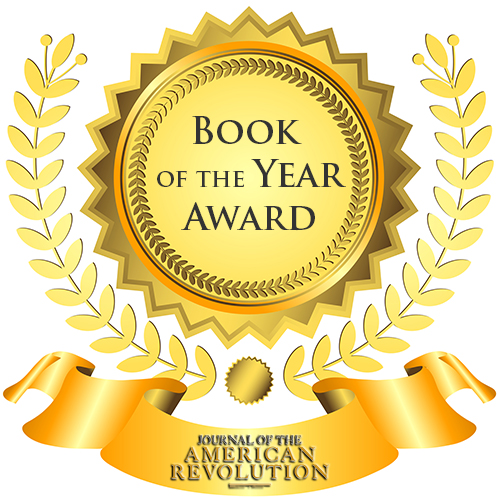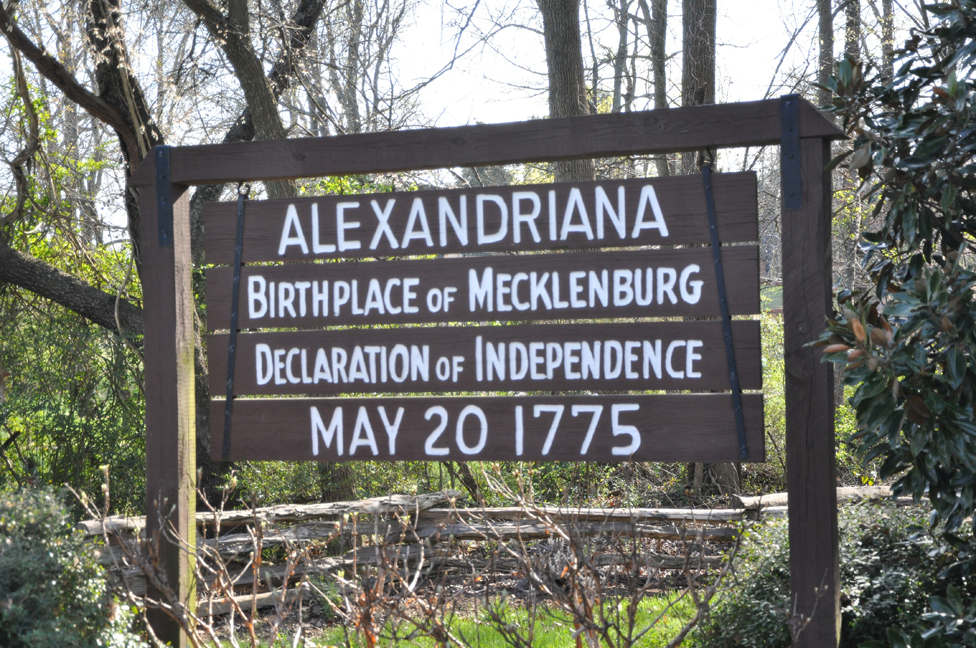In Summary View of the Rights of British America (1774), Jefferson wrote of King George III’s unwillingness to use his “negative” to veto unjust proposals. Two years later, Jefferson echoed this sentiment in his first draft of Declaration of Independence. Here, Jefferson listed a “long train of abuses & usurpations,” at the hand of King George III. Those, he added, were “begun at a distinguished period, & pursuing invariably the same object.” Those abuses were indicative of “arbitrary power,” and he considered it the right, even duty, of those oppressed to throw off such discretionary abuse of authority and establish a new government, by consent of the people, in accordance of the will of the people.
The abuses Jefferson delineated in his draft of the Declaration are many, at least twenty-five, some complaints listed being compound claims. The last, and that to which he devoted the most ink, was the introduction of slavery into the colonies.
He [King George III] has waged cruel war against human nature itself, violating its most sacred rights of life & liberty in the persons of a distant people who never offended him, captivating & carrying them into slavery in another hemisphere, or to incur miserable death in their transportation thither. This piratical warfare, the opprobrium of infidel powers, is the warfare of the Christian king of Great Britain. Determined to keep open a market where MEN should be bought & sold, he has prostituted his negative for suppressing every legislative attempt to prohibit or to restrain this execrable commerce: and that this assemblage of horrors might want no fact of distinguished die, he is now exciting those very people to rise in arms among us, and to purchase that liberty of which he has deprived them, & murdering the people upon whom he also obtruded them; thus paying off former crimes committed against the liberties of one people, with crimes which he urges them to commit against the lives of another.

Some things are worth underscoring in Jefferson’s passage on slavery.
First, there is Jefferson’s use of capital letters for the word men. Nowhere else in his draft did he employ capitals. That shows philosophically and unequivocally that Jefferson considered Blacks as men, not as chattel, and that argues decisively against the naïve view, articulated by many in the secondary literature, that the Declaration was not meant to include Blacks. In Jefferson’s eyes, by simple tautology, as human beings, slaves in the colonies deserved the same rights as all other men.
Second, Jefferson accused the king of religious hypocrisy. George III was a “Christian king,” yet he was guilty of “piratical warfare:” taking people, who had done nothing to offend him, and conveying them like cattle to America. The king, of course, did not introduce slavery to America, nor did Jefferson accuse him of such. That occurred in 1619, when Dutch merchants brought some twenty Africans as indentured servants, to Jamestown, Virginia. Those who settled in America quickly found that transatlantic slavery provided a cheaper and more abundant labor source than other indentured servants, mostly penurious Europeans, and so the practice continued. Yet the king, Jefferson asserted, had “prostituted his negative”—that is, he had availed himself of none of presumably numerous legislative opportunities to nullify or even moderate the slave trade. George III could have put an end to the transatlantic slave trade, but he did not.
Most importantly, Jefferson drew an impassioned, if dubious comparison between the plight of the slaves and that of the colonists. In Jefferson’s eyes, while colonists made slaves of the Blacks brought to the colonies, King George, through abuses and usurpations, made slaves of his colonial subjects. He viewed the arbitrary hand with which the colonies were governed by England, under the auspices of Parliament and King George III, as akin to arbitrary and brutal conditions of captivity under which slaves in the colonies suffered. Thus, Jefferson believed that there existed two levels of slaves: colonists, who were not deserving of the same rights and treatments of other British citizens perhaps because of their “voluntary” transplantation, and transplanted Blacks, who were the property of the colonists, or the slaves of the “slaves.”
Yet George III encouraged these “slaves of the slaves”—Blacks who had been stripped of their humanity by being stripped of their rights—to rise up in revolt against their white masters by joining the British in the Revolutionary War. His inducement was freedom from oppression—a condition for which he, through his own refusal to act, was deemed in large part responsible by Jefferson. Nonetheless, by the same argument, the colonists, stripped of their humanity by being stripped of their rights, considered themselves entitled to rise up against the king, as George III, in his overtures to enslaved Blacks, implicitly sanctioned in a generic argument that any people deprived of their rights had a moral duty to revolt. Thus, the king himself implicitly justified a wholesale colonial revolution.
In constructing the layered argument in the passage and in underscoring the king’s hypocrisy, Jefferson may have reflected on the hypocrisy of colonists who kept enslaved people. That the king might have been partially responsible for the transplantation of enslaved people to the continent did not exculpate colonists for keeping slaves.
Finally, the undue length and the placement of the passage in Jefferson’s first draft are revelatory. There are 168 words in the passage. No other grievance comes near to it in length. That argues for the strength of Jefferson’s conviction that slavery was opprobrious. Moreover, that Jefferson positioned the lengthy grievance in the last place indicates that he considered the grievance his coup de grace.
Those things noted, there is something strained in the passage. Carl Becker in his The Declaration of Independence writes: “The passage is clear, precise, carefully balanced. It employs the most tremendous words—‘murder,’ ‘piratical warfare,’ ‘prostituted,’ and ‘miserable death.’ But in spite of every effort, the passage somehow leaves us cold.” It is “calm and quiescent,” lacking in warmth, and fails to move us. Readers get a sense of “labored effort”—that is, of “deliberate striving for an effect that does not come.”
Becker is right but fails to recognize the reason: the hypocrisy of the colonists, Jefferson included. He blamed the king for sanctioning slavery by not stopping the exportation of enslaved people to America, but he nowise addressed the issue of the colonists, freed Blacks among them, putting transmigrated Blacks to work as slaves. The guilt here must be shared.
That stated, we must acknowledge the entrenchment of slavery at the time—the year was no longer 1619—and the South’s economic dependency on it. The issue of eradication of the vile institution held serious and enormous short-term economic implications for the nascent country, hence the broad-based reluctance to take action.
Jefferson’s anti-slavery passage was excised by Congress and so it did not appear in the Declaration of Independence. The reason was that slavery, widely practiced in the South, was a divisive issue and the Declaration of Independence and its redress of grievances to the King and parliament required that all states form a united front. To include this lengthy grievance, Jefferson wisely anticipated, would likely have created unnecessary division among members of Congress at a time when their common cause demanded cohesion.
Jefferson expressed regret that the excised passage was not included in the final draft. He said in notes on the Continental Congress: “the clause . . . reprobating the enslaving the inhabitants of Africa, was struck out in complaisance to South Carolina & Georgia, who had never attempted to restrain the importation of slaves, and who on the contrary still wished to continue it. Our Northern brethren also I believe felt a little tender under those censures; for tho’ their people have very few slaves themselves yet they had been pretty considerable carriers of them to others.”
His hypocrisy aside, Jefferson deserves acknowledgement for articulating his anti-slavery views in his draft of the document, even if the paragraph was axed. By doing so, he stuck out his neck, so to speak, placing himself at odds with most others from the South, his own state especially, on slavery. The passage did reach the hands of others in the Congress and Jefferson’s opposition to slavery became widely known by members. In that regard, the excised passage was not without effect and ought not now to be without effect. Yet today’s scholars often conveniently overlook the risk Jefferson took in crafting that passage.








One thought on “George III’s (Implicit) Sanction of the American Revolution”
I think your analysis of Jefferson, while acknowledging his hypocrisy, goes too far in arguing that he was opposed to slavery. His relationship was more tortured than that, given his economic dependence on the labor of his enslaved workers, his emotional dependence on Sally Hemmings and their family, and his philosophical dependence on the argument that representation was the most fundamental right of Englishmen, as in “no taxation without representation.”
Your headline argument that King George sanctioned this right to representation (and hence revolution) when Lord Dunmore and Clinton issued emancipation proclamations to men enslaved by rebels who would fight for Great Britain overstates a war-time tactic of local commanders. It was not a proclamation of the King, just as George III was not responsible for the Sullivan decision which outlawed slavery in Great Brtain. The decrees issued by Dunmore and Clinton did not indicate King George’s opinion regarding enslaved labor. In any case, these emancipation proclamations did not apply to people enslaved by Loyalists, whose enslavement continued as they were transported on British ships to other parts of the empire after the war.
Jefferson’s attempt to throw everything at the King did not stick because as you say, it was obviously untrue. Colonial rebels, north and south, were responsible for the continued use of enslaved labor. Jefferson’s dependence on bound labor was replicated after national independence, before the Civil War and after Reconstruction was killed in 1877. The hypocrisy of the Declaration led to 750,000 lives lost in the war and after a decade, the thousands of US citizens lynched amid state-sanctioned terror and Black codes that enforced servile labor in to the late 20th Century. It required a 20th Century civil rights movement to move us toward liberty and equality for all. As we near the 250th anniversary of the Declaration of Independence, rarified ideals of liberty and equality remain a measuring rod for our imperfct union.